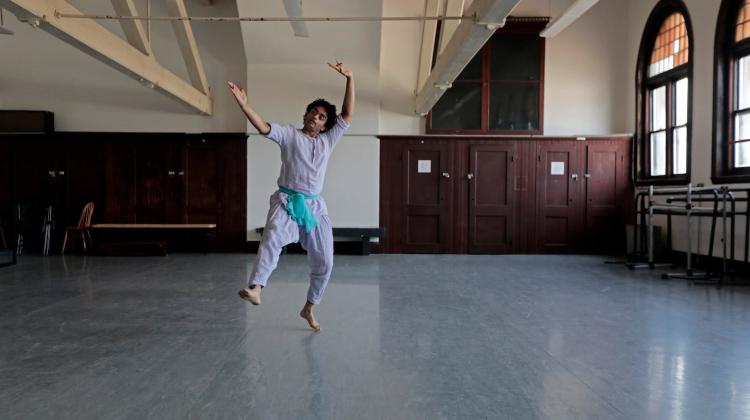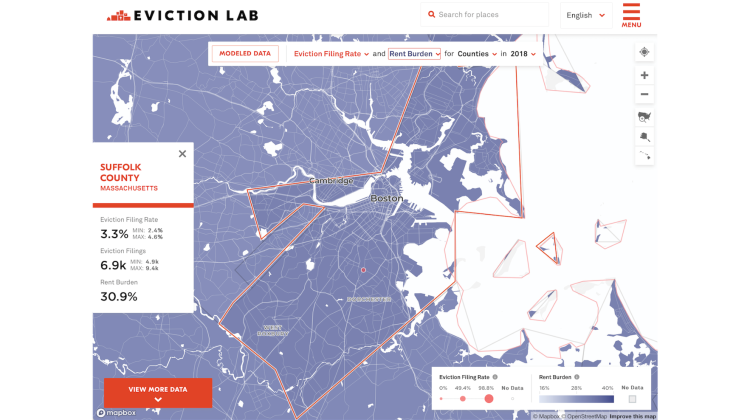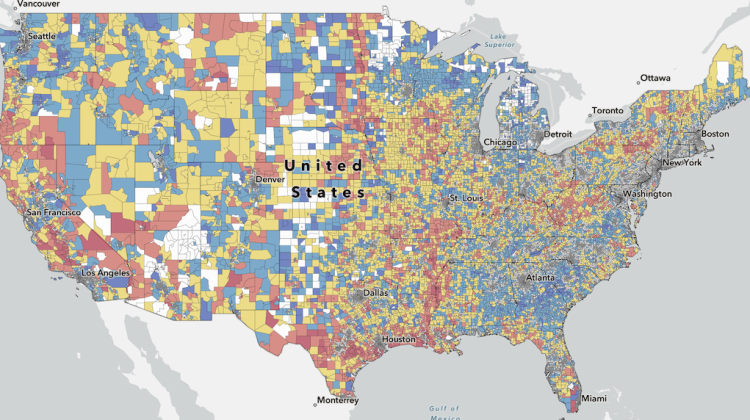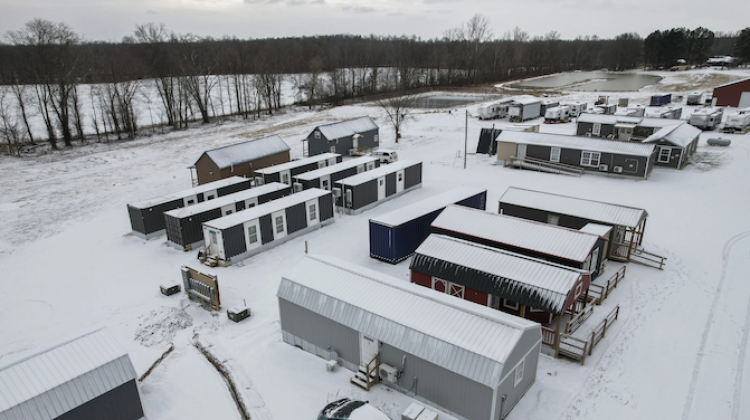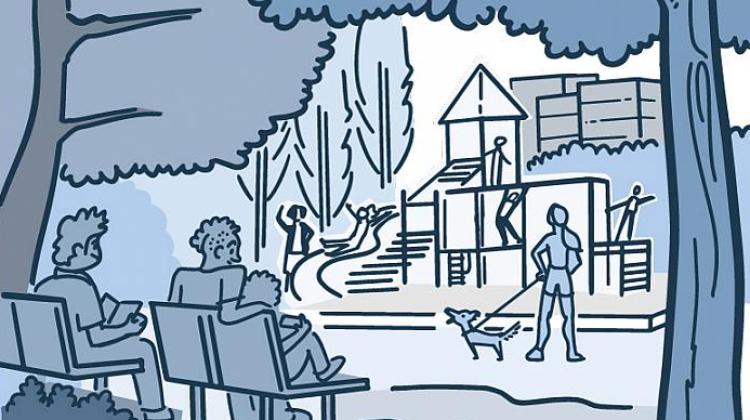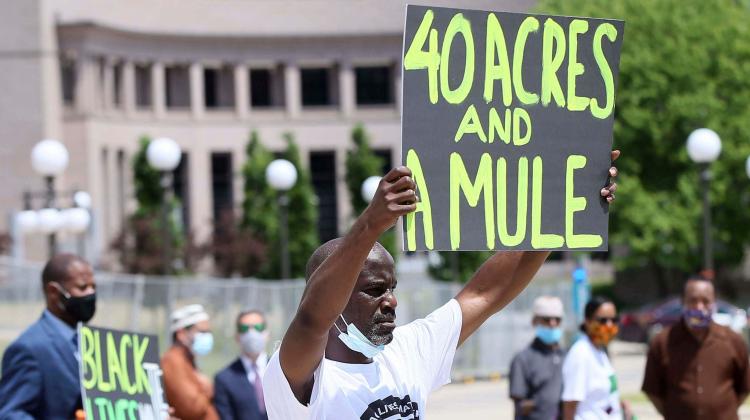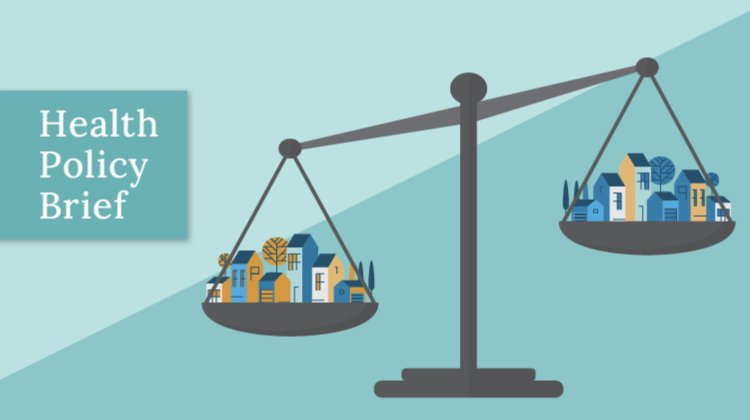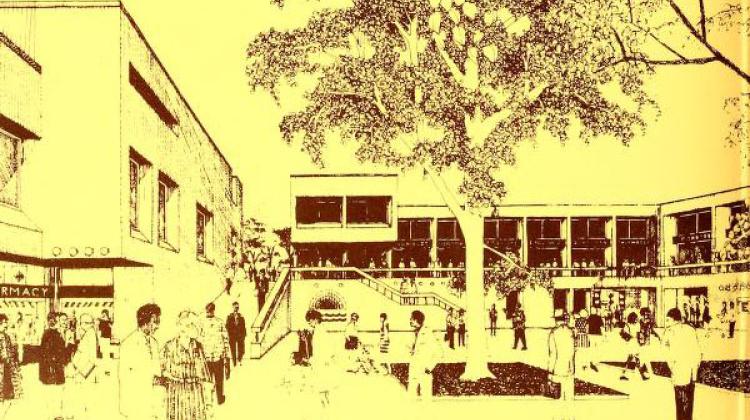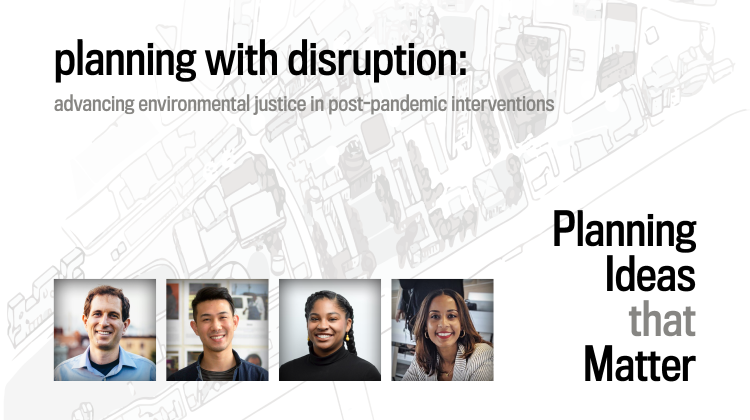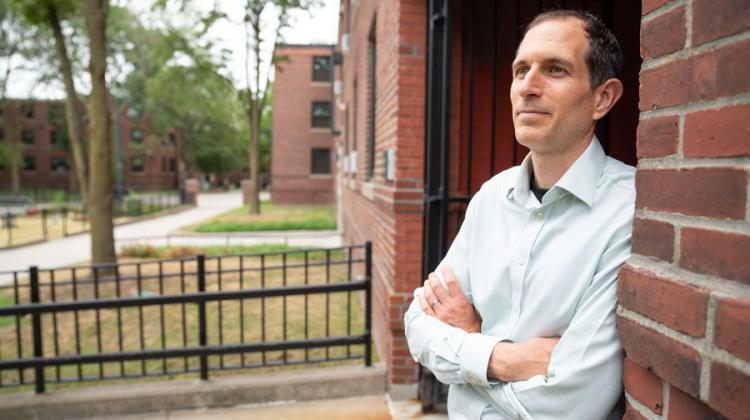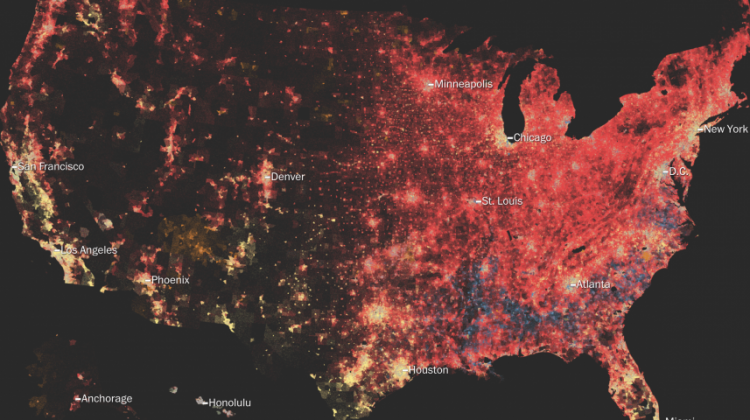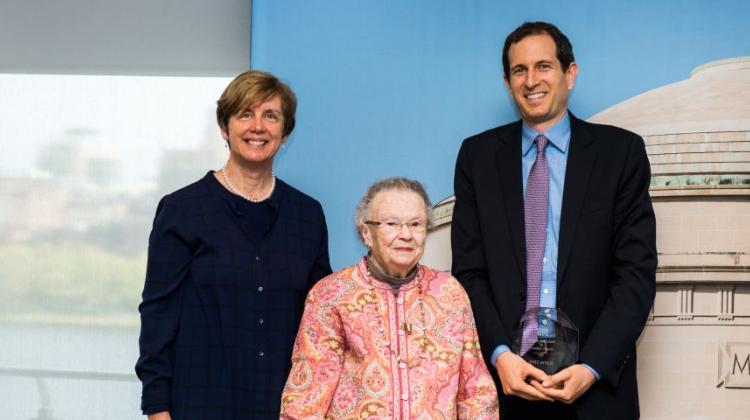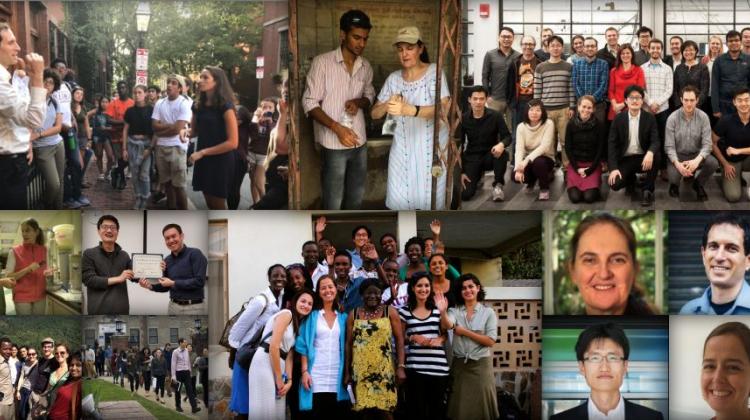Justin Steil
Justin Steil is an Associate Professor of Law and Urban Planning and a Margaret MacVicar Faculty Fellow. As a lawyer, a paramedic, and an urban planner, his research focuses on spatial dimensions of inequality. Justin analyzes spatial inequality in the domains of environmental justice, housing and land use policies, and health equity, among others. Recent research on environmental justice focuses on the effects of climate-change-related disasters on renters, including on rents, evictions, and affordable housing production. Work on housing policy includes scholarship on housing discrimination and its effects, fair housing law and policy, gentrification and displacement pressure, and the dynamics of eviction. Scholarship on land use disentangles how the structure of local governance and the regulation of land use interact with housing policies to shape the spatial structure of our social world in ways that produce economic and racial inequality. Recent research on health equity focuses on the effects of neighborhoods on health and on the role of emergency medical services in advancing health equity.
Justin is the co-editor of three books: Furthering Fair Housing: Prospects for Racial Justice in America’s Neighborhoods (2021); The Dream Revisited: Contemporary Debates about Housing, Segregation, and Opportunity (2019); and Searching for the Just City: Debates in Urban Theory and Practice (2009).
Before coming to MIT, Justin was a Fellow at the Furman Center for Real Estate and Urban Policy at New York University Law School. Prior to NYU, he clerked for the Hon. M. Margaret McKeown, United States Court of Appeals for the Ninth Circuit, and the Hon. Kimba M. Wood, United States District Court for the Southern District of New York. Before graduate school, he worked as advocacy director for a non-profit fighting predatory lending practices, urban planner for an environmental justice organization focusing on brownfield redevelopment, program manager for a project bringing youth and prisoners into critical dialogues about justice, and trainer with a domestic violence crisis center instructing police in Ciudad Juárez in the support of survivors of sexual assault.
Justin received a B.A. from Harvard College in African-American Studies, an M.Sc. from the London School of Economics in City Design and Social Science, a J.D. from Columbia Law School, and a Ph.D. in Urban Planning from the Columbia Graduate School of Arts and Sciences. For most of the past two decades, he has volunteered teaching in jails or prisons, and he has co-founded volunteer teaching programs at Boston’s Suffolk County House of Correction; New York City’s Riker’s Island Correctional Facility; and the federal Metropolitan Correctional Center in Manhattan.
Justin serves on the Board of the Poverty and Race Research Action Council and was formerly a member of the Boston Federal Reserve Bank's Community Development Research Advisory Council. He is an affiliate of MIT’s Women’s and Gender Studies program, Sociology at MIT, MIT’s Legal Studies Concentration, and a member of the Steering Group of the Inter-University Consortium on Migration. Justin is a frequent expert in federal civil rights litigation for state and local attorneys general and local and national civil rights organizations and authors amicus briefs related to fair housing, including to the U.S. Supreme Court in Bank of America v. City of Miami. Justin is a nationally registered paramedic, the researcher in residence for Boston Emergency Medical Services (EMS), and a volunteer for MIT EMS.
Justin has received numerous awards for his teaching and advising, including the student awarded Departmental Teaching Award in 2016 and Advising Award in 2022 and 2023, the MIT Office of Graduate Education Committed to Caring Award in 2018, and the MIT Graduate Student Council Frank E. Perkins Award for Excellence in Graduate Advising in 2021. MIT in 2018 awarded Justin the Paul Gray Award for Public Service, recognizing “a member of the MIT faculty who exemplifies building a better world” through his or her teaching, research, advising, and service.” MIT in 2021 awarded Justin the Harold E. Edgerton Award for exceptional contributions in research, teaching, and service. In 2025, Justin was named a MacVicar Fellow, for exemplary and sustained contributions to undergraduate education. The International Municipal Lawyers Association awarded him an amicus service award in 2019 and Boston Emergency Medical Services in 2023 awarded him a Special Citation for “extraordinary actions improving Emergency Medical Services…through continuous contribution.”
His research is regularly cited in leading journalistic outlets, including The New York Times, The Boston Globe, The Associated Press, Bloomberg, Stat, NPR's Weekend Edition and On Point, and other news sources.
Selected Publications:
Brennan, M., Freemark, Y., Steil, J., Dyer, S., Salvia, J., Segal, L. Serino, E., (2025). Mobility Risk: Using Ambulance Operations Data to Analyze the Spatial and Social Dimensions of Health Disadvantage. Cities and Health
Hagan, M., Hepburn, P., Steil, J., & Weiss, B. (2025). Ensuring Housing Stability and Protections for the Nation’s Renters: Avenues for Federal Action. Housing Policy Debate.
Nu, D., Muzio, J., Zheng, S., Steil, J. (2025) Understanding Housing Market Responses to Stringent Energy Codes. Real Estate Economics.
Summers, N., & Steil, J. (2024). Pathways to Eviction. Law and Social Inquiry.
Brennan, M., Srinivasakrishnan, T., & Steil, J. (2024). High and Dry: Rental Markets After Flooding Disasters. Urban Affairs Review.
Arcaya, M., Ellen, I., & Steil, J. (2024). Neighborhoods And Health: Interventions At The Neighborhood Level Could Help Advance Health Equity. Health Affairs 43(2): 156-163.
Steil, J. (2024) Climate Disasters and Environmental Justice. In A. Gorlin & V. Newhouse (Eds.) Housing the Nation: Affordability and Social Equity. New York: Rizzoli.
Brennan, M., Dyer, S., Jonasson, J., Salvia, J., Segal, L. Serino, E., & Steil, J. (2023). The policy case for designating EMS teams for vulnerable patient populations: Evidence from an intervention in Boston. Health Care Management Science. 1-16.
Steil, J. & Arcaya, M. (2023). Residential Segregation And Health: History, Harms, And Next Steps. Health Affairs Health Policy Brief, April 27, 2023.DOI: 10.1377/hpb20230321.580719.
Steil, J. & Lens, M. (2023). Public Policies To Address Residential Segregation And Improve Health. Health Affairs Health Policy Brief, April 27, 2023. DOI: 10.1377/hpb20230321.466701.
Williams, R., & Steil, J. (2023) “The Past We Step Into and How We Repair It” A Normative Framework for Reparative Planning. Journal of the American Planning Association 1-12.
Williams, D. A., Delgado, L. H., Cameron, N., & Steil, J. (2023). The Properties of Whiteness: Land Use Regulation and Anti-Racist Futures. Journal of the American Planning Association, 1-12.
Brennan, M., Steil, J., Dyer, S., Segal, L. Salvia, J., & Serino, E. (2022). Policy-Relevant Indicators of Urban Emergency Medical Services COVID-19-Patient Encounters. Journal of Urban Health. https://doi.org/10.1007/s11524-022-00672-0.
Briggs, X., Martin, C., Reina, V., & Steil, J. (2022). Seeing More, Learning More: Equity in Housing and Community Development. Cityscape: A Journal of Policy Development and Research.
Freemark, Y. & Steil, J. (2022). Local Power and the Location of Subsidized Renters in Comparative Perspective: Public Support for Low- and Moderate-Income Households in the United States, France, and the United Kingdom. Housing Studies 37(10), 1753-1781.
Brennan, M., Mehta, A., and Steil, J. (2022). In Harm’s Way? The Effect of Disasters on the Magnitude and Location of Low-Income Housing Tax Credit Allocations. Journal of Policy Analysis and Management 41(2): 486-514.
Srinivasakrishnan, T., Brennan, M., Steil, J., Mazereeuw, M. & Ovalles, L. (2022). A Perfect Storm? Disasters and Evictions. Housing Policy Debate 32(1): 52-83.
Boustan, L. P., Margo, R. A., Miller, M. M., Reeves, J. M., & Steil, J. P. (2022). Does Condominium Development Lead to Gentrification? Journal of Urban Economics Insight 133: https://doi.org/10.1016/j.jue.2022.103524.
Robinson, D. & Steil, J. (2021). Eviction Dynamics in Market-Rate Multifamily Rental Housing. Housing Policy Debate 31: 647-669 (https://doi.org/10.1080/10511482.2020.1839936).
Preis, B., Janakiraman, A., Bob, A., & Steil, J. (2021) Mapping Gentrification and Displacement Pressure: An Exploration of Four Distinct Methodologies. Urban Studies 58(2), 405-424.
Steil, J. Kelly, N., Vale, L. & Woluchem, W. (2021). Fair Housing: Promises, Protests, and Prospects for Racial Equity in Housing. In J. Steil, N. Kelly, L. Vale, & M. Woluchem (Eds.). Furthering Fair Housing: Prospects for Racial Justice in America’s Neighborhoods (pp. 3-43). Philadelphia: Temple University Press.
Kelly, N., Woluchem, M., Jordan, R. & Steil, J. (2021). The Promise Fulfilled? Taking Stock of Assessments of Fair Housing. In J. Steil, N. Kelly, L. Vale, & M. Woluchem (Eds.). Furthering Fair Housing: Prospects for Racial Justice in America’s Neighborhoods (pp. 93-126). Philadelphia: Temple University Press.
Steil, J. & Kelly, N. (2021). From Suspension to Renewal: Regaining Momentum for Fair Housing. In J. Steil, N. Kelly, L. Vale, & M. Woluchem (Eds.). Furthering Fair Housing: Prospects for Racial Justice in America’s Neighborhoods (pp. 229-233). Philadelphia: Temple University Press.
Freemark, Y., Steil, J., & Thelen, K. (2020). Varieties of Urbanism: A Comparative View of Inequality and the Dual Dimensions of Metropolitan Fragmentation. Politics & Society 48(2), 235-274.
Mehta, A., Brennan, M. & Steil, J. (2020). Affordable Housing, Disasters, and Social Equity: LIHTC as a Tool for Preparedness and Recovery. Journal of the American Planning Association 86(1), 75-88.
Steil, J. & Charles, C. Z. (2020). The Sociology of Segregation and Fair Housing. In V. Reina, W. Pritchett, & S. Wachter (Eds.). Perspectives on Fair Housing. Philadelphia: University of Pennsylvania Press.
Anguelovski, I., Brand, A. Connolly, J. Corbera, E., Kotsila, P., Steil, J., Garcia-Lamarca, M., Triguero-Mas, M., Cole, H., Baro, F., Langemeyer, J., Perez del Pulgar, C., Shokry, G., Sekulova, F., and Ramos, L.. (2020) Expanding the Boundaries of Justice and Equity in Urban Greening Scholarship: Towards an Emancipatory, Intersectional, and Relational approach. Annals of the American Association of Geographers 110(6), 1743-1769.
Steil, J. & Kelly, N. (2019). Survival of the Fairest: Examining HUD Reviews of Assessments of Fair Housing. Housing Policy Debate 29(5), 736–751.
Steil, J. & Delgado, L. (2019). Limits of Diversity: Jane Jacobs, the Just City, and Anti-Subordination. Cities: The International Journal of Urban Policy and Planning 91, 39-48.
Steil, J. (2018). Antisubordination Planning. Journal of Planning Education and Research (https://doi.org/10.1177/0739456X18815739).
Steil, J. & Traficonte, D. (2018). A Flood—Not a Ripple—Of Harm: Proximate Cause Under the Fair Housing Act. Cardozo Law Review 40(3), 1237-1285.
De la Roca, J., Ellen, I. G., & Steil, J. (2018). Does Segregation Matter for Latinos? Journal of Housing Economics 40, 129-141.
Steil, J., Albright, L., Rugh, J. & Massey, D. S. (2018). The Social Structure of Mortgage Discrimination. Housing Studies 33(5), 759-776.
Ellen, I. G., Steil, J., & De la Roca, J. (2016). The Significance of Segregation in the 21st Century. City and Community 15(3), 8-13.
Steil, J., De la Roca, J. & Ellen, I. G. (2015). Desvinculado y Desigual: Latino Segregation and Access to Opportunity. Annals of the American Academy of Political and Social Science 660(1), 57-76.
Steil, J. & Vasi, I. B. (2014). The New Immigration Contestation: Social Movements and Local Immigration Policymaking in the United States, 2000-2011. American Journal of Sociology 119(4), 1104-1155.
Steil, J. & Ridgley, J. (2012). Small Town Defenders: The Production of Citizenship in Hazelton, Pennsylvania. Environment and Planning D: Society and Space 30(6), 1028-1045.
Courses
Laws of the Land: Environmental and Land Use Law (11.268/11.368) (Fall 2024)
Examines the intersection of environmental law with property and land use laws, and how they relate to environmental protection and climate change. It begins with a brief introduction to the U.S. legal system. It explores the legal process of land transfer and the legal structure of development rights and the regulation of land use in the United States. It presents basic pillars of environmental law including the National Environmental Policy Act, the Clean Air Act, Clean Water Act, and the Comprehensive Environmental Response, Compensation, and Liability Act, examining the intersection of each with issues of land use and real estate development. It also reviews state and local efforts to address climate change through land use regulation and building code changes.
Place, Race, and Law: Land Use and Civil Rights Law (11.067/11.367) (Spring 2025)
Examines the intersection of race, place, and law by studying the how the use of land is controlled. It begins with a brief introduction to the U.S. legal system. It introduces basic concepts in property law and then focuses the regulation of land use as well as state and local government law. It examines why and when government regulation, rather than private market ordering, might be necessary to control land use patterns. It examines the rights of owners of land and the types of regulatory and market-based tools that are available to control land use in the United States and provides a framework for evaluating these tools. Issues discussed include zoning ordinances, subdivision creation, land assembly, and takings. It then presents common legal challenges to land use regulations and decision-making. The course introduces students to basic principles of civil rights and antidiscrimination law and focuses on the role of the land use regulatory system and structure of local governance in perpetuating or addressing racial inequality, including topics such as exclusionary and inclusionary zoning, metropolitan fragmentation, and gentrification. The course concludes by considering land use regulation in relation to the powers of states and local governments and issues of racial and economic equity. The course explores three fundamental normative questions: who should control how land is used, how should they do it, and what are the implications of both of the prior questions for racial equity?
Housing Finance and Social Equity (Spring 2025)
Persistent disparities in access to homeownership raise the question of what new policies and practices in housing finance can advance social equity goals. Truly advancing equity in housing finance requires rethinking our current, complex housing finance system and raising foundational questions about how risk is understood, managed, and priced; how the housing finance system is structured and regulated; and how challenges related to climate change and resilience can be recognized and addressed. The class will begin with an overview of our current housing finance system and then include readings and lectures by invited speakers who are practitioners and experts in civil rights, financial markets, and government policy, seeking to creatively rethink current structures of housing finance.
Environmental Justice, Science, and Technology (Spring 2025)
How can science and technology be employed in the study of and fight against environmental injustice? We engage this question by examining the history of the Environmental Justice movement, then studying the role science and technology has played in exacerbating or ameliorating environmental inequalities, and considering different theoretical frameworks, methodologies, and technological tools that contest (or produce) environmental injustice.
Environmental Justice: Law and Literature (Fall 2024 First Year Undergraduate Seminar Only)
This seminar for first-year undergraduates introduces frameworks for analyzing and addressing inequalities in the distribution of environmental benefits and burdens, particularly by race and by class. It will start by exploring the foundations of the environmental justice movement from the perspectives of law and social science. The seminar will introduce students to basic principles of the U.S. legal system, with a focus on constitutional law, civil rights law, and environmental law. The course will also engage read literary representations of environmental justice and injustice and relate them to relevant legal cases. Through the course, students will be able to apply basic U.S. legal principles and conceptions of environmental justice to contemporary issues such as policy responses to climate change.
Introduction to Housing, Community, and Economic Development (11.401)
Provides a critical introduction to the shape and determinants of political, social, and economic inequality in America, with a focus on racial and economic justice. Explores the role of the city in visions of justice. Analyzes the historical, political, and institutional contexts of housing and community development policy in the US, including federalism, municipal fragmentation, and decentralized public financing. Introduces major dimensions in US housing policy, such as housing finance, public housing policy, and state and local housing affordability mechanisms. Reviews major themes in community economic development, including drivers of economic inequality, small business policy, employment policy, and cooperative economics. Expectations and evaluation criteria differ for students taking graduate version.
Quantitative Reasoning and Statistical Methods for Planning (11.220)
Develops logical, empirically based arguments using statistical techniques and analytic methods. covers elementary statistics, probability, and other types of quantitative reasoning useful for description, estimation, comparison, and explanation. Emphasis on the use and limitations of analytical techniques in planning practice. Restricted to first-year MCP students. Students are required to attend one of the three scheduled recitation sections.




